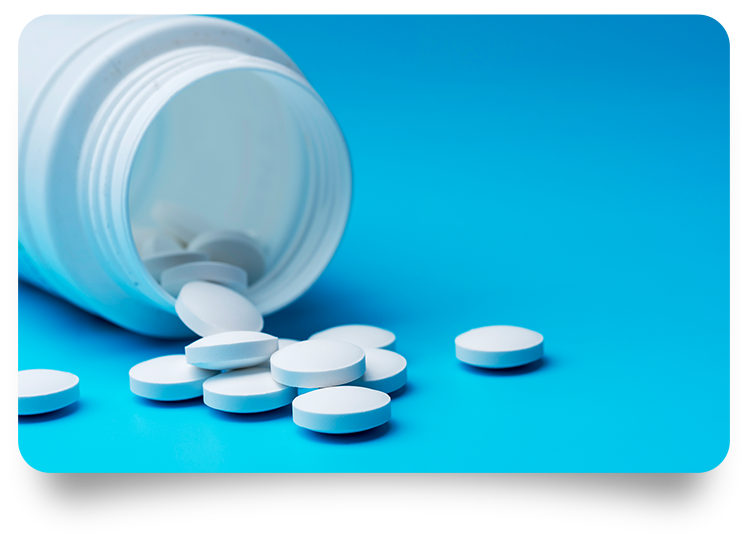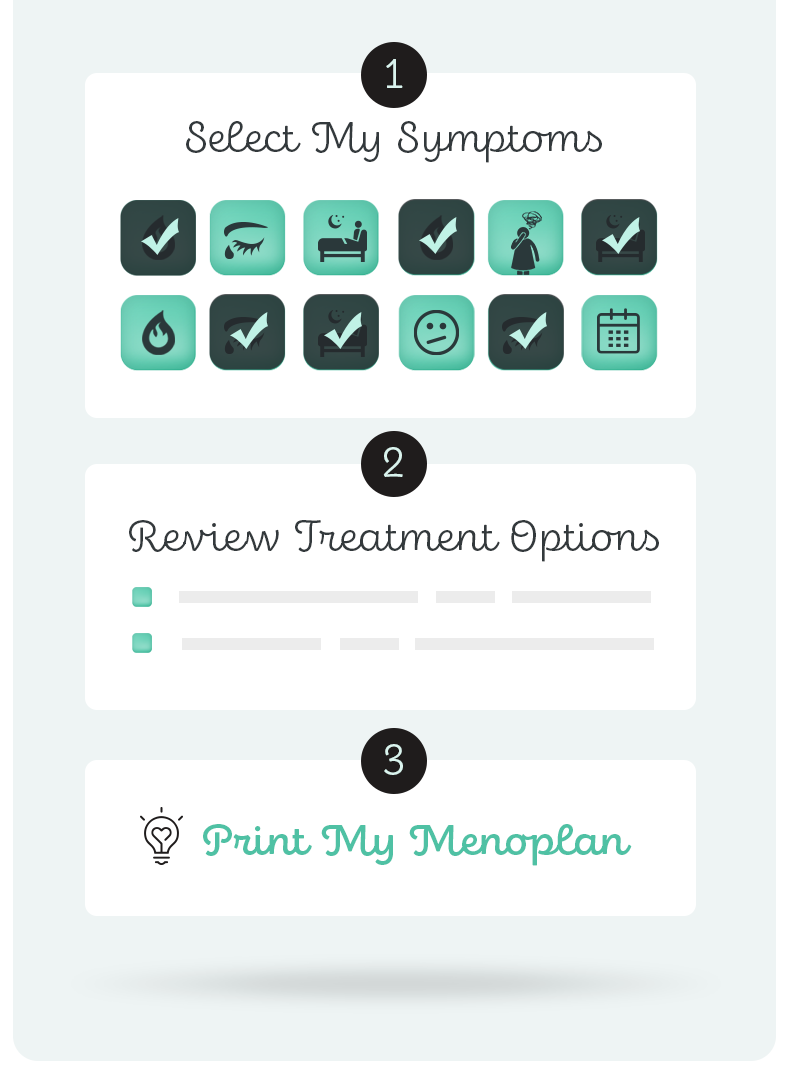OSPEMIFENE
WHAT IS IT?
Ospemifene is an oral medication that is taken every day. It is in the class of medicines known as selective estrogen receptor modulators (SERMs). Selective estrogen receptor modulators (SERMs) act like estrogen in some tissues and block estrogen’s effects in other tissues.
Ospemifene acts like estrogen in the vagina but appears to not have estrogen like effects in the uterus or breast. It was approved by the FDA in 2013 for the treatment of moderate or severe vaginal pain during sex caused by vulvovaginal atrophy in menopausal women. Vulvovaginal atrophy is the thinning of the lining of the vagina that happens when estrogen levels fall.
OUR BOTTOM LINE: DOES IT HELP?
YES. When taken every day, ospemifene appears to improve vaginal dryness and vaginal pain with sex to a modest degree. It has never been directly compared to other treatments such as vaginal estrogen. However, we note that the only studies of ospemifene’s effectiveness have been paid for by the drug company that make it.

PAIN DURING SEX

VAGINAL PAIN, NOT DURING SEX

LOW SEX DRIVE – If decreased interest in sex is due to having pain with sex, ospemifene may be of help.
POTENTIAL RISKS & SIDE EFFECTS
Ospemifene increases hot flashes in some women. There is theoretical concern about it potentially increasing the risk of blood clots in veins (deep vein thrombosis, pulmonary embolism). It does cause some small increase in the thickness of the uterus (endometrium) but studies that have followed women for one year have not seen an increase in risk of cancer of the uterus. Longer studies are needed to fully answer this question.
QUALITY OF LIFE EXPECTATIONS
If quality of life is decreased because of vaginal pain with sex, ospemifene may be helpful.
IF I WANT TO TRY THIS TREATMENT WHAT ARE MY NEXT STEPS?
Beginning treatment depends on the vaginal symptom(s). If you have vaginal itching, pain with urination, or vaginal discharge, see your provider. For pain with sexual activity, first try plant-based lubricants like coconut oil. These may or may not help for vaginal dryness or pain felt at other times (without sexual activity). If the vagina is too tight, try vaginal dilators and a referral for pelvic physical therapy. A counselor may help you talk about this with your partner.
If symptoms do not resolve, or if you do not like using a lubricant, or your symptom is constant dryness, you could next try vaginal estrogen. If vaginal estrogen is not helpful or you find it difficult to use, you could consider treatment with ospemifene (Osphena). This requires a prescription from a health care provider. Depending on your insurance, ospemifene can be costly.
The perfect treatment for menopausal vaginal symptoms has not been developed, mainly because we do not fully understand the cause(s) of the symptoms. Postmenopausal women have skin changes of the vagina and vulva related to decreased estrogen – the skin becomes thinner and smoother, with decreased blood flow and aging nerves. These changes are seen on physical examination and are called genitourinary atrophy. But not all women with vaginal signs of atrophy have vaginal symptoms and when they do, the degree of atrophy does not correlate with the severity of symptoms. The estrogen decrease that occurs with menopause may prompt symptoms for some women but replacing local hormones does not always effectively treat vaginal symptoms and women with atrophy on examination may improve with nonhormonal therapies.
Ospemifene acts like estrogen in the vagina and appears to reverse some of the changes associated with atrophy. In studies funded by pharmaceutical companies, it improves vaginal dryness and pain with vaginal sex to a modest degree compared to placebo.
Bachmann GA Komi JO. Ospemifene effectively treats vulvovaginal atrophy in postmenopausal women: results from a pivotal phase 3 study . Menopause 2010; 17 : 480 – 6.
Constantine G, Graham S, Portman DJ, Rosen RC, Kingsberg SA. Female sexual function improved with ospemifene in postmenopausal women with vulvar and vaginal atrophy: results of a randomized, placebo-controlled trial. Climacteric. 2015 Apr;18(2):226-32. doi: 10.3109/13697137.2014.954996. Epub 2014 Sep 25. PMID: 25252699; PMCID: PMC4389697.
Nappi RE, Panay N, Bruyniks N, Castelo-Branco C, De Villiers TJ, Simon JA. The clinical relevance of the effect of ospemifene on symptoms of vulvar and vaginal atrophy. Climacteric. 2015 Apr;18(2):233-40. doi: 10.3109/13697137.2014.975199. Epub 2014 Dec 16. PMID: 25335119; PMCID: PMC4438339.
Portman D, Palacios S , Nappi R , Mueck AO. Ospemifene, a non-oestrogen selective oestrogen receptor regulator for the treatment of vaginal dryness associated with postmenopausal vulvar and vaginal atrophy: a randomised, placebo-controlled, phase III trial . Maturitas 2014 ; 78 : 91 – 8
Last reviewed June 2021



